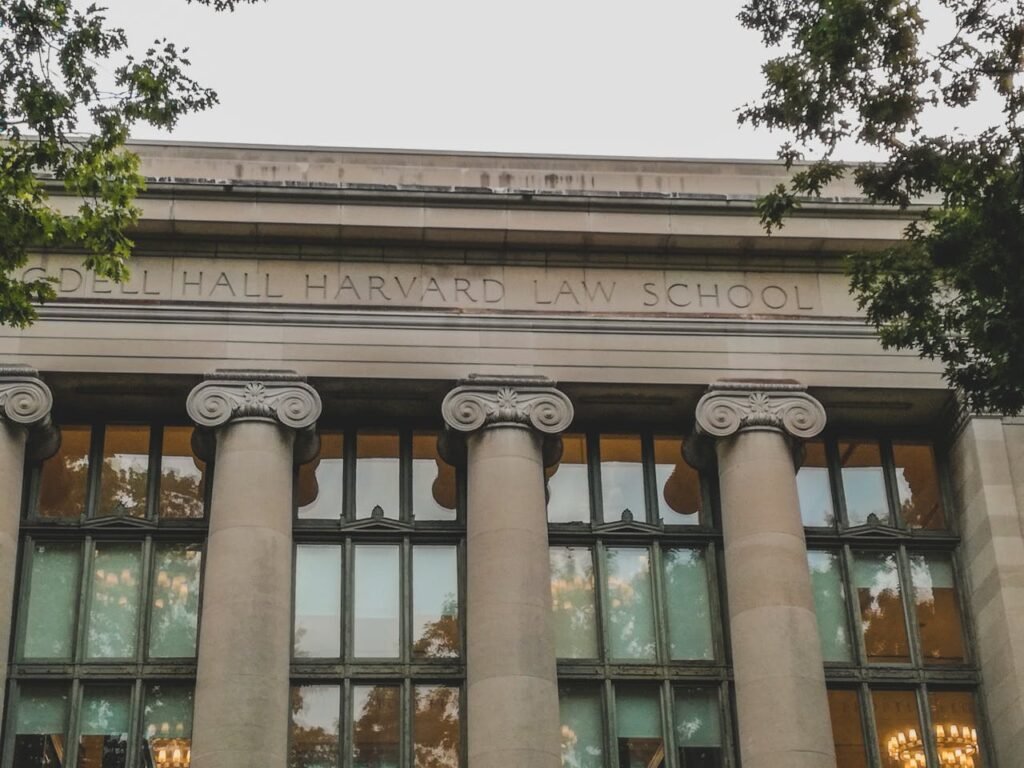Harvard renaming DEI office is a defining moment in the national debate over identity, accountability, and education funding. On April 28, 2025, Harvard University officially changed the name of its Office for Equity, Diversity, Inclusion, and Belonging to the Office of Community and Campus Life. This announcement arrives amid legal threats and political pressure from the Trump administration, including the potential loss of $2.2 billion in federal funding unless DEI programs are eliminated.
Whether this shift reflects a genuine philosophical change or a calculated move for survival remains the subject of fierce debate.
Why Harvard Renamed Its DEI Office
The move to rename the DEI office was communicated by Sherri Ann Charleston, who now holds the title Chief Community and Campus Life Officer. In her message to the university, she cited a new focus: strengthening community, encouraging open dialogue, and supporting underrepresented groups through engagement rather than demographic categorization.
The timing, however, aligns directly with escalating federal scrutiny. Just weeks earlier, the Trump administration issued warnings to institutions like Harvard: comply with new restrictions on DEI programming or face funding consequences.
Institutional Pressures and Legal Backdrop
This renaming doesn’t exist in a vacuum. On April 11, 2025, Harvard received formal notice that failure to dismantle its DEI programs could jeopardize billions in federal research support. In response, the university filed a lawsuit against the administration, citing violations of First Amendment protections and procedural norms.
Compounding the situation, Harvard is also under investigation for potential race-based discrimination in its Law Review admissions process—a case that further complicates its public image and legal standing.
What the New Office Will Focus On
Instead of identity-based initiatives, the new Office of Community and Campus Life will center its efforts on:
-
Creating inclusive dialogue across political and cultural divides
-
Supporting low-income and first-generation college students
-
Enhancing cross-cultural programming and student-led projects
-
Implementing insights from the 2024 Pulse Survey on Inclusion & Belonging
The decision builds upon findings that showed while most students felt respected and a sense of belonging, there were gaps in comfort expressing differing views—especially among Jewish and Muslim students.
Harvard’s Broader DEI Strategy in Question
The renaming came alongside the cancellation of affinity group commencement ceremonies, signaling a clear move away from identity-based programming. This pivot has sparked concern among diversity advocates who see it as a retreat from hard-won inclusion efforts.
The university insists the goal is to move toward a deeper sense of community—one built on lived experience rather than ideological branding.

National Trend: Other Universities Follow Suit
Harvard isn’t alone. Institutions like UCLA, USC, and North Carolina State have also renamed their DEI offices, opting for terms like “Inclusive Excellence” or “Campus Belonging.” Many schools are preemptively adjusting their strategies to avoid legal entanglements and funding disruptions.
This trend reflects a broader cultural moment: universities are recalibrating their messaging and mission in response to federal demands and shifting public opinion.
Reactions: Praise, Criticism, and Skepticism
Public opinion on the renaming of Harvard’s DEI office is split:
-
On X, some conservatives celebrated the move as a long-overdue correction.
-
Critics, including students and faculty, warned it was a branding maneuver with no real policy change.
-
Commentators like Larry Elder labeled it “The Trump Effect,” claiming it as proof that political pressure yields results.
-
Outlets like The Harvard Crimson and CNN questioned whether the renaming would materially affect campus climate or diversity outcomes.
The Stakes: Funding, Reputation, and Mission
While Harvard’s $53 billion endowment gives it considerable financial freedom, the loss of $2.2 billion in federal research grants would be a massive blow. The renaming can be seen as a pragmatic choice to preserve operations while refocusing on values that appear politically safer.
Whether this signals a meaningful shift or a tactical façade is a question that will define the next chapter of DEI in higher education.
Conclusion: Harvard Renaming DEI Office Reflects a National Reckoning
The Harvard renaming DEI office decision underscores the growing tension between federal authority and academic freedom. With elite institutions under pressure to reform or risk financial penalties, many are adapting their language, if not always their philosophy.
This moment may mark a turning point—not only for Harvard, but for how American universities approach diversity, merit, and inclusion moving forward.
FAQs About Harvard Renaming DEI Office
What prompted Harvard to rename its DEI office?
The change came amid legal threats from the Trump administration, which demanded the dismantling of DEI programs or risk losing $2.2 billion in federal funding. Harvard renamed the office on April 28, 2025, to reflect a broader focus on community and engagement.
Is Harvard eliminating DEI programs entirely?
No, Harvard says it’s restructuring—not eliminating—its approach. Programs now emphasize dialogue, community-building, and support for low-income and first-generation students rather than identity-based frameworks.
Who leads the new Office of Community and Campus Life?
Sherri Ann Charleston, formerly the Chief Diversity and Inclusion Officer, now serves as Chief Community and Campus Life Officer.
What other changes were announced alongside the renaming?
Harvard canceled funding for affinity group commencement ceremonies, a move that some view as a retreat from identity-based initiatives.
How have students and faculty responded?
Reactions are mixed. Some see it as a capitulation to federal pressure, while others view it as a necessary reset to foster more genuine campus unity.
Is this part of a national trend?
Yes. Other schools like USC and UCLA have also rebranded their DEI offices, often due to similar political and financial pressures.
Will this affect Harvard’s legal battle with the federal government?
The renaming may be part of a broader legal strategy, but Harvard’s lawsuit against the funding freeze remains ongoing.
How does this impact future diversity efforts?
Time will tell. While the name has changed, whether the substance of the work will remain robust or become diluted is still under scrutiny.


